Our 9 Part Series on the Ernest Movies Comes to a Melancholy, Oddly Messianic End with 1998's Ernest in the Army
This is the end, my only friend, the end
Every saga has an ending. Take The Simpsons. That will probably end at some point. Possibly. And the best part of that show’s glorious run is that it has maintained the same impossibly high level of quality over thirty four equally transcendent seasons.
The same, unfortunately, cannot be said of the Ernest P. Worrell movies. The beloved and prolific TV pitchman roared out of the gate with four timeless masterpieces in Ernest Goes to Camp, Ernest Saves Christmas, Ernest Goes to Jail and Ernest Scared Stupid but as is so often the case with great artists who have used their voice to say something profound about the human condition, the end was not pretty.
1995’s bewildering Slam Dunk Ernest found the series taking a hard turn into oblivious racism before Ernest Goes to Africa inexplicably and regrettably added brown face to the mix while amping up the racism considerably.
Just about the nicest thing that can be said about 1998’s Ernst in the Army, the final film in the Ernest series, is that it’s not quite as terrible or racist as the stinkers that precede it but it still manages to be awful and also fairly racist in its own right.
Ernest in the Army finds Ernest signing up to become just another cog in the imperialist American war machine out of an innocent, child-like desire to drive large vehicles.
The film was apparently a very personal project for John R. Cherry III, who created and refined the character of Ernest P. Worrell with Varney, first in a series of local and national television commercials and later in television and film.
The two defining experiences of Cherry’s life were serving in Vietnam as a young man and shepherding the Ernest series as an adult. That means that there is a fairly good chance that the man who created Ernest has probably killed somebody, possibly even within the context of warfare.
War changes people. It forces them to confront death and their own mortality, as well as man’s inhumanity to man. Cherry III’s experiences in Nam inform every stupid pratfall here although the conflict in the film is more overtly modeled on the Iraq War.
Cherry III apparently watched news of gassings and Scud attacks and dead children and thought that that would be a fun playground for Ernest P. Worrell to frolic in.
In his God-like prime, Jim Varney was a comedy machine. He was a fast and meticulous virtuoso whose photographic memory allowed him to memorize and rattle off reams and reams of verbose dialogue at a machine gun clip.
But lung cancer and years of hard living took a toll on the performer. By the time Ernest Goes to Africa and Ernest in the Army were filmed back to back in South Africa and then dumped direct to video, Ernest’s energy had begun to flag and he was nowhere near as precise as he once was.
There’s an early scene, for example, where Ernest is riding around on his belly on a motorized vehicle while picking up golf balls at a driving range that is filmed in long shots with dialogue that was clearly added afterwards.
In his younger days, Varney would have no problem pulling off a scene like that but here “Ernest” is clearly played by a stunt double while his words are clearly the product of an ADR session.
So it is perhaps not surprising that the first twenty minutes or so of Ernest in the Army are shockingly and disconcertingly Ernest-light. Then again, the filmmakers have a LOT of plot to set up and way too many characters and conflicts to introduce.
Ernest in the Army, is, after all, about an international conflict involving the United States reserves, U.N Peacekeeping forces and President for Life Almar Habib Tufuti (Ivan Lucas), the villainous ruler of the fictional country of Aziria.
President for Life Tufuti is Ernest in the Army’s hammy take on Saddam Hussein, who was quite the villain du jour when the film was written in 1993. Why did it take the film five years to hit undiscriminating video store shelves? Probably because Cherry III spent a solid half decade painstakingly perfecting a magnum opus he was convinced would be his masterpiece, the one they would remember him for.
Ernest in the Army would be Cherry III’s ultimate statement. Cherry III even cast himself in a sizable supporting role as Ernest’s buddy, apparently because he couldn’t find anyone to do a convincing Southern accent in South Africa.
In a move at once off-brand and kind of sweet, Cherry III himself delivers Ernest’s catchphrase, “Know what I mean?” more than once. Cherry III is not much of an actor but all his role really calls for is a Southern drawl and easy rapport with Jim Varney and those were both in his tiny wheelhouse as an actor.
Ernest in the Army has so much non-Ernest business to get through that it has a newsman delivering exposition on an CNN-like news station that figures prominently in the plot AND perversely somber narration from a resident of Karifistan who is rotting in a prison after his wife was murdered, leaving his son Ben-Ali (Christo Davids) to run the streets a lost boy, with no one but an American goober to keep him from certain death.
In opening narration that I found almost impressively unfunny, Ben-Ali’s dad gloomily states, “Once again, history spewed forth a wave of aggression that swept over the land and everything in its path was crushed beneath the treads of its ambition. There was little to stop evil’s triumphant march. So the beast lured the eagle by devouring the defenseless and an orphan child wept, praying, hoping, looking for a liberator of his land and his future.”
I just want to reiterate that those are all actual words that appear in an Ernest movie. Ernest in the Army takes its white savior narrative VERY seriously. White savior narratives are particularly problematic when the savior in question is Ernest P. Worrell, a famous dullard.
Ernest’s desire to drive big trucks leads him to enroll in the Reserves, confident that he won’t be called upon to do any actual fighting or be a real soldier. So you can only imagine how mortified he is to discover that his unit is being shipped out to the fictional Arab nation of Karifistan to assist with a U.N Peacekeeping unit by the malevolent Colonel Bradley Pierre Gullet (David Muller).
Unsurprisingly, the aggressively non-woke Ernest in the Army depicts the U.N in an almost slightly more positive light than it does its bargain-basement Saddam Hussein.
Colonel Gullet sells out the U.N for cold hard cash and, in what disconcertingly, is not the only attempted sexual assault in the Ernest series (Ernest Goes to Jail has one as well), tries to force himself on Cindy Swanson (Hayley Tyson), an American journalist Ernest has a huge crush on who passed herself off as a soldier so that she can report on the war and is quickly kidnapped alongside Colonel Gullet and held hostage by President for Life Tufuti.
Ernest does not make a smooth transition to armed combat. In fact, he’s a bit of a buffoon. He is, to be honest, a real numbskull, which is on brand, obviously, but I’ve always liked it when the series would hint that Ernest was actually something of an idiot-savant with unexpected knowledge and areas of expertise to go along with all the jokes about him being dumb even for an American.
Our hero is first scammed by Ben-Ali before he saves the poor boy’s life, earning his eternal loyalty in the process. For, you see, Ernest is the fulfillment of the prophecy about the great American warrior saving the people of Karifistan from the evils of Tufuti.
Ernest more or less single-handedly defeats Tufuti’s evil minions and without using a gun, either. He’s a fool who bumbles his way into literally unbelievable heroism.
The cornpone icon saves EVERYBODY. He saves the boy, who is then reunited with his father, and his reporter crush and also the people of Karifistan.
In an act of mild sadism, Touchstone, which put out the first four Ernest movies, insisted on the character being not just asexual but devoid of genitalia, as smooth as a Ken doll below the belt.
You’d think that Ernest would go hog wild like an Amish kid on Rumspringa once he escaped Disney’s shackles and grim moralism and put out a vehicle called Ernest Gets His Fuck On or Ernest Does the Kama Sutra.
That, sadly, was not to be. Ernest has semi-love interests in some of his latter vehicles, but none are at all satisfying.
That’s true here as well. Cindy rewards Ernest for SAVING HER LIFE with a chaste, closed mouth kiss on the lips.
It’s tame stuff, dry PG semi-smooching but Ernest is so anxious that his dried lips peel off during the clinch. Instead of being so turned on that she begs Ernest to fuck her, the ambitious journalist instead storms away in disgust.
Ernest follows after her like a lost puppy and begs for another chance but whatever attraction she might have felt towards the bumbling hero has mutated almost instantly into full-on revulsion.
It’s an insulting, undignified way to end the Ernest saga that’s followed, oddly enough, by an excessively flattering, hagiographic conclusion.
Our somber narrator returns to inform us, with trademark misplaced gravity, “And so it came, as the years passed, that Ben Ali became a great leader of the Arab world and brought peace to the war-torn land and on every public building and street sign, a small, barely visible inscription reading “Stick by your buddy.” Know what I mean?”
It is consequently canonical that in the Ernest franchise the Arab world has finally attained a state of hard-won peace and it’s all because of the accidental heroics of a simpleton from the American south.
Ernest in the Army, and by extension, the Ernest franchise, ends on an oddly messianic note, with an Arab boy lovingly holding Ernest’s hat as is it were a sacred religious relic, and not the chapeau of someone with an IQ in the double digits.
There would be no more Ernest, unfortunately. On February 10th, 2000, the world mourned a misunderstood and underestimated giant of American comedy when Jim Varney died at the unfathomably premature age of 50.
I’ve said it before and I will say it again. Why do so many good people who have enriched our lives immeasurably die young while disgusting pieces of shit like Donald Trump and actor Matthew Perry continue to live?
There’s always something bittersweet about endings. The conclusion of my epic journey through the Ernest franchise is no different. I’m glad I took this ride with you.
So let’s not be sad that it’s over. Let’s just be grateful that it happened in the first place.
So while this may be an end we’ve got multiple beginnings to look forward to.
In two weeks I will begin TWO epic journeys through entertainment of exquisitely checkered quality when I begin, in earnest, big trips through all of the Saturday Night Live movies AND the complete filmography of one-time Not Ready for Prime Time Player James Belushi.
It’s gonna be fun! That’s the Nathan Rabin promise.
Know what I mean?






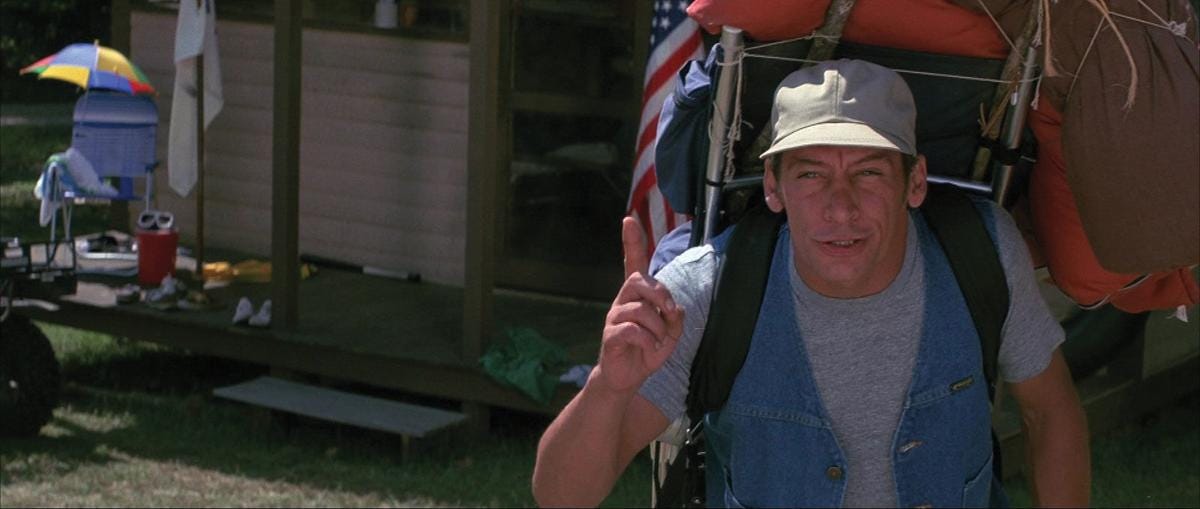

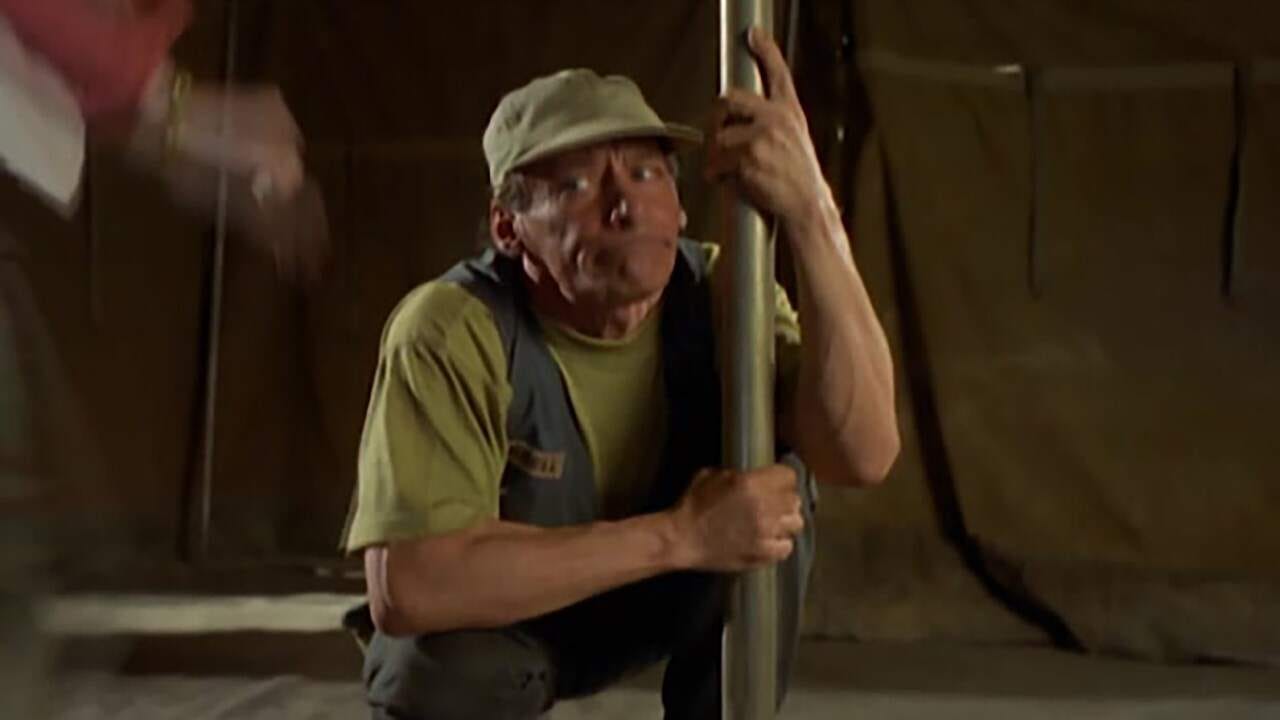
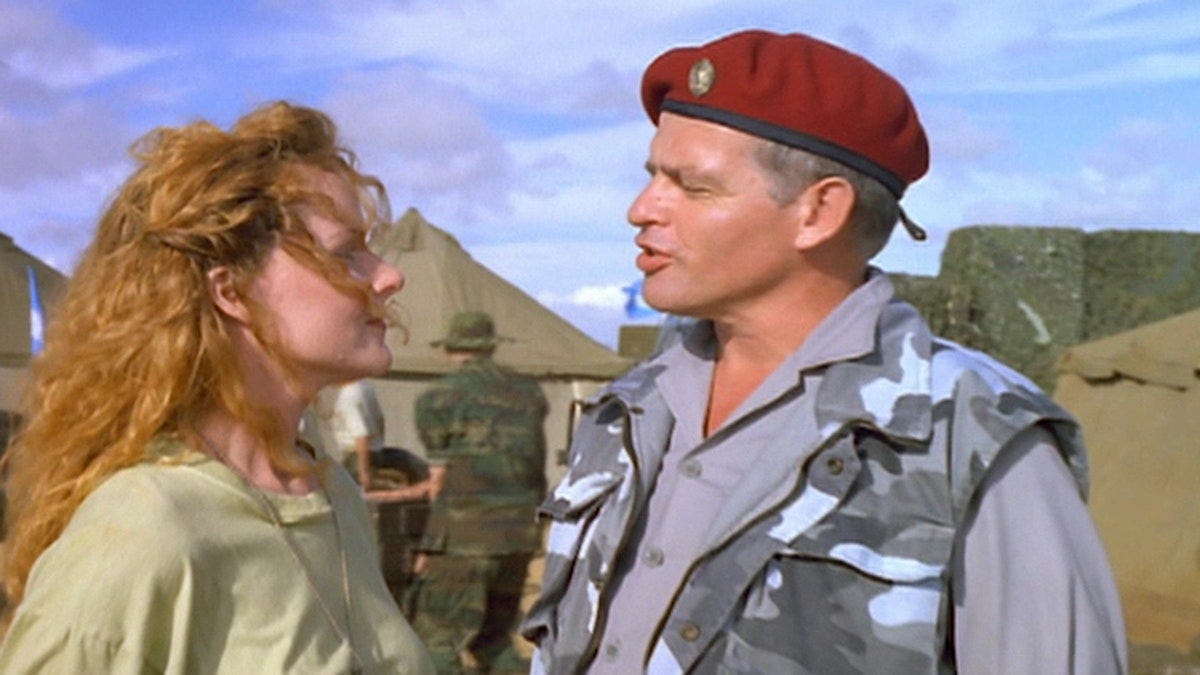
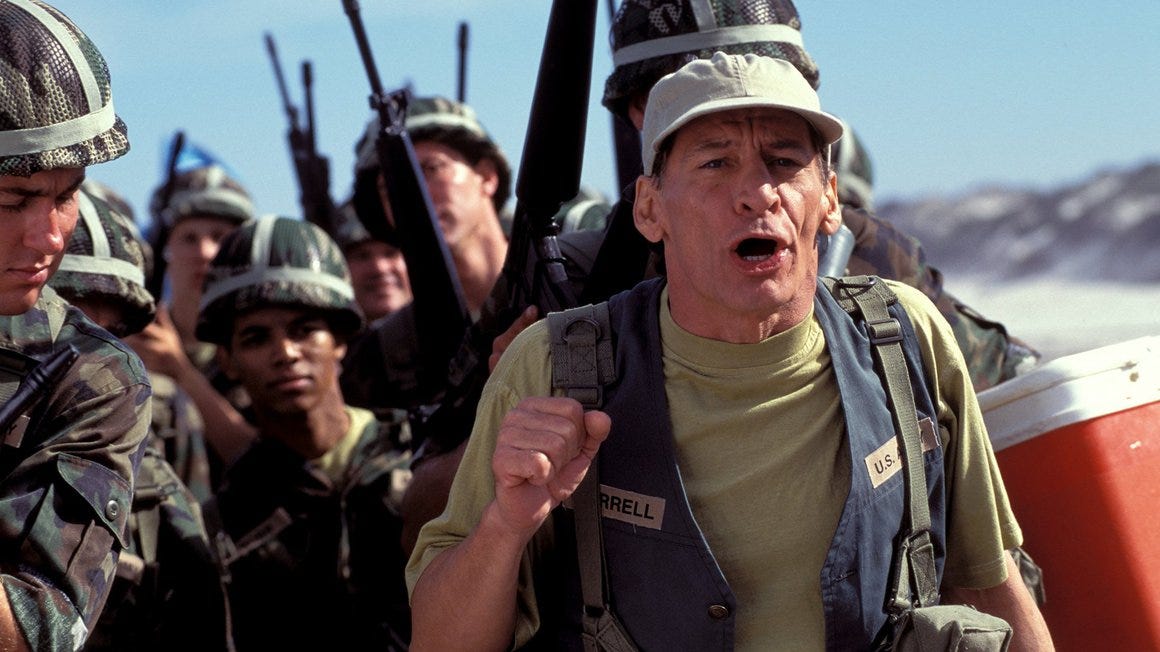
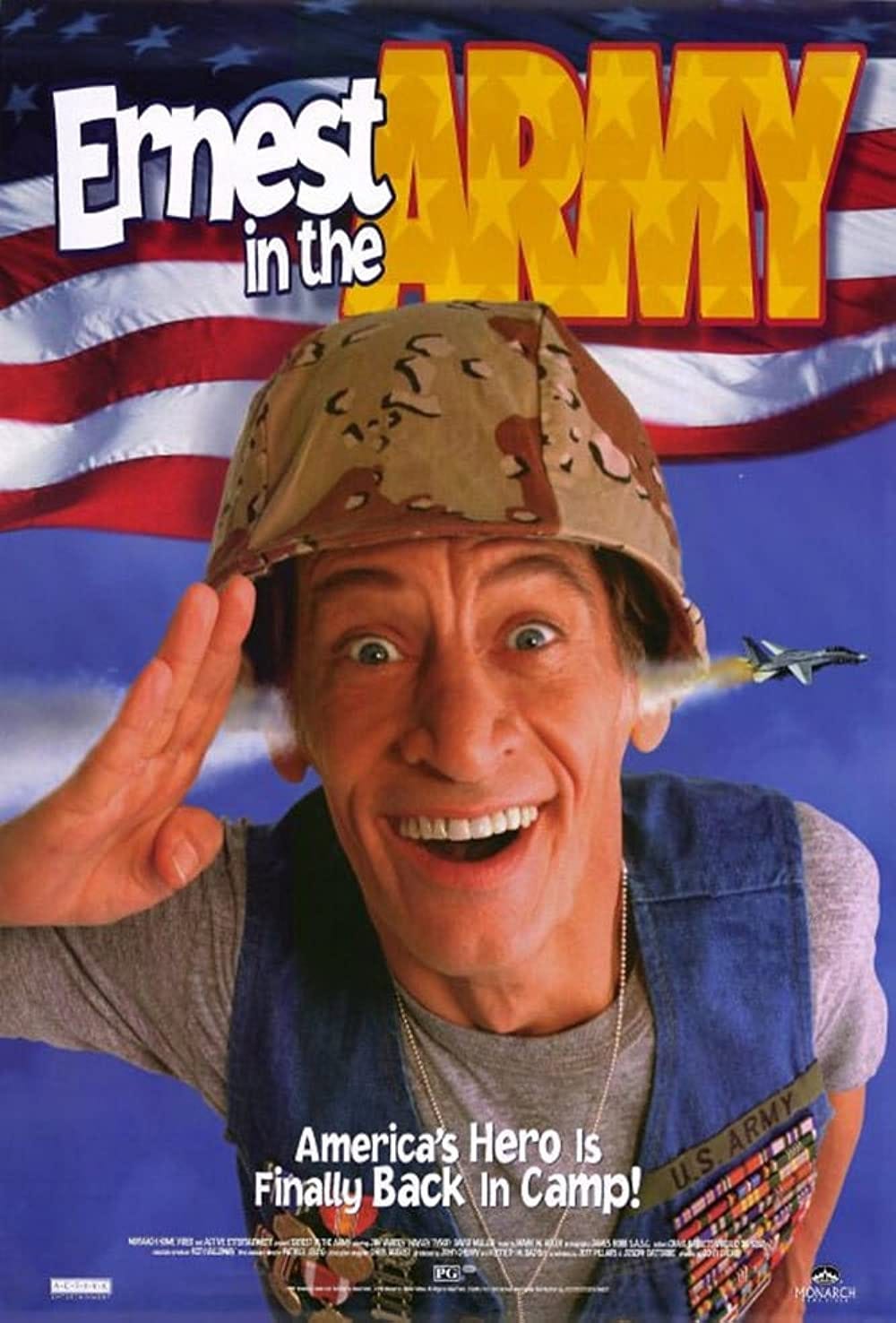
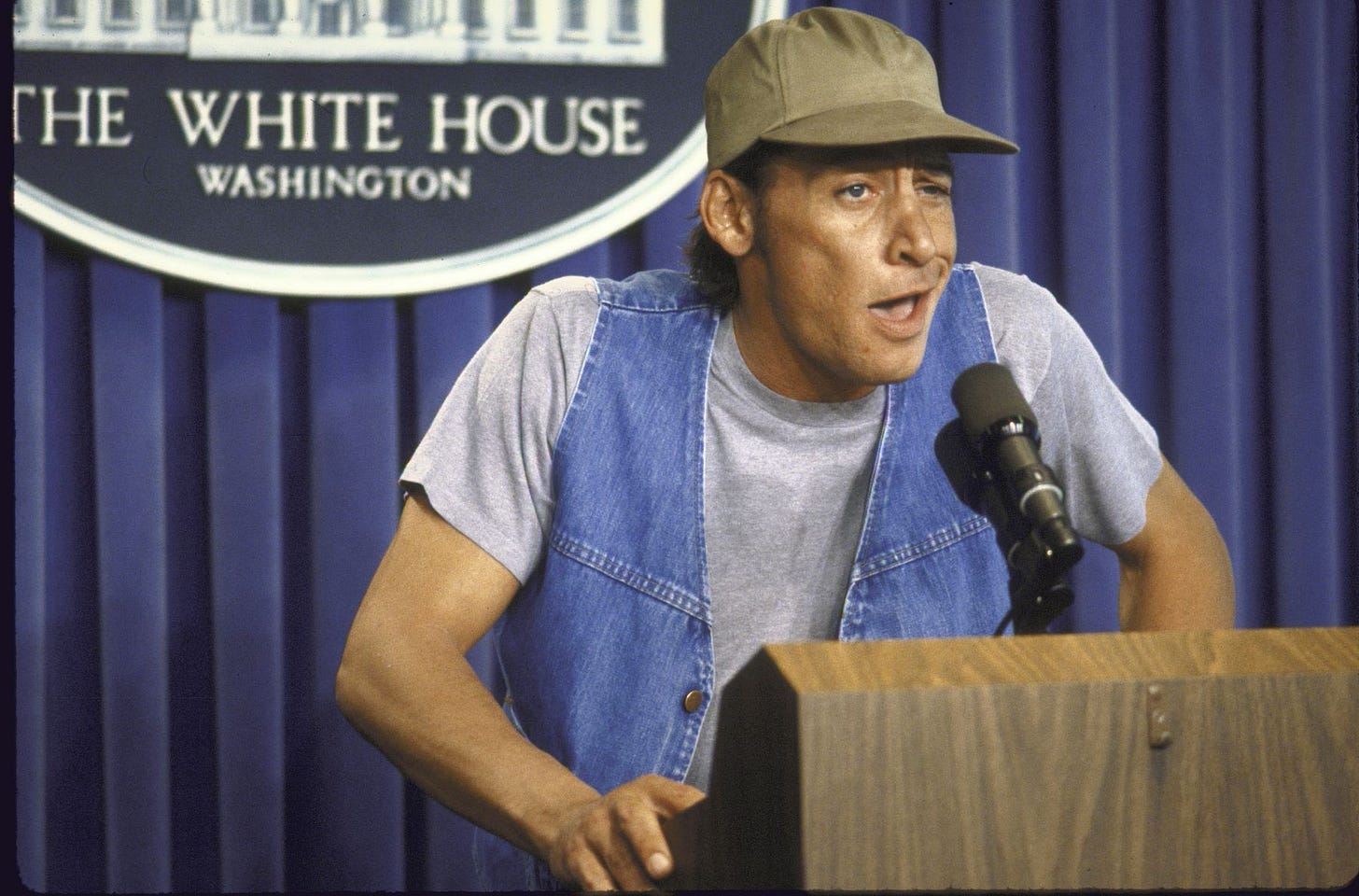
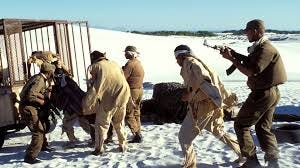
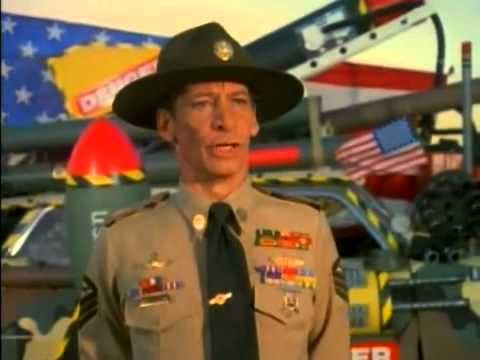
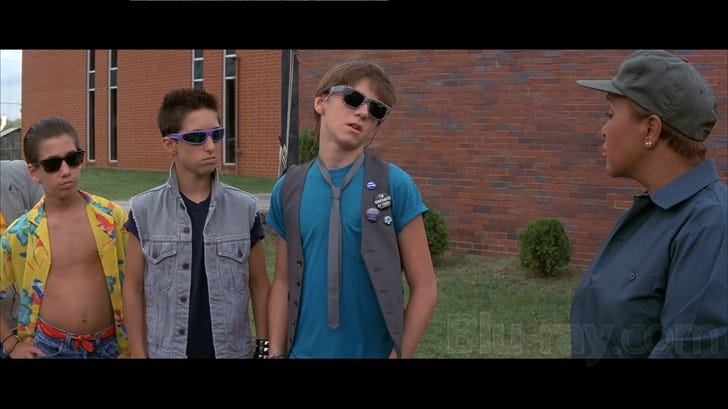
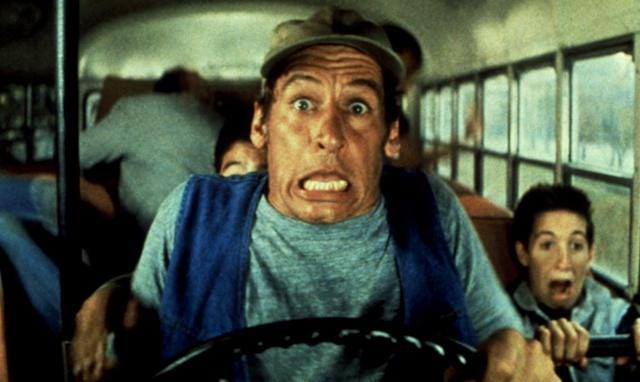
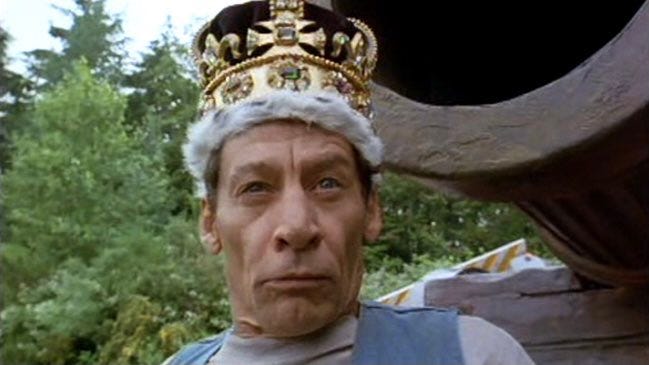

The end of this project is legitimately making me feel kind of sad. Of course it could also be the depression, but it feels weirdly Ernest-based. Goodbye, you beautiful angel!
Me surprised they not hit on Army hijinx as concept early in series, because there at least more potential for comedy in that general idea than basketball or African ones. If second or third Ernest movie involved him going into Army, when actor and writers behind him were both in top form, that could be very fun movie.
Me will also say that me can only think of one person less likely to engender peace throughout Middle East than Ernest P. Worrel, and that Jared Kushner.